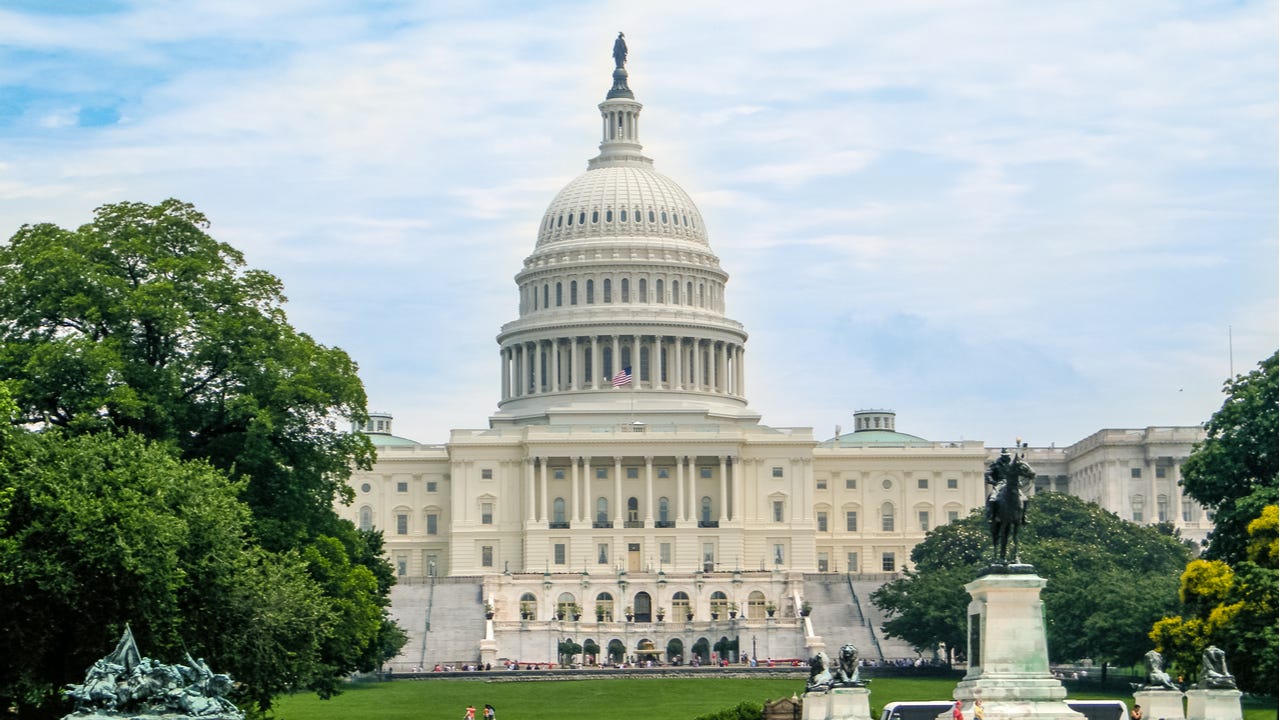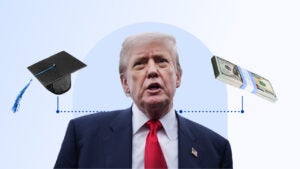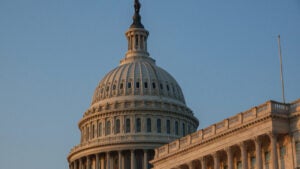How a government shutdown could affect student aid

Key takeaways
- A government shutdown could interrupt your access to various financial support programs, including student aid.
- If you are in the process of applying for financial aid, know that FAFSA applications will continue being processed in the event of a partial or full federal government shutdown.
- Updating your personal information and completing applications as far in advance as possible is your best bet for offsetting potential shutdown-related setbacks.
A government shutdown is a scenario that happens when Congress fails to pass budget legislation for the upcoming fiscal year. During a government shutdown, “nonessential” government offices are closed, which could impact programs like Social Security, SNAP and more. Government shutdowns can also affect some parts of student financial aid.
How a government shutdown could affect your financial aid
- If you’re completing the FAFSA: Applications would still be accepted, but verification for eligible noncitizen status could be delayed. Copies of tax transcripts could be hard to obtain.
- If you’re applying for a new loan: The process of applying for a federal student loan could be slowed, especially if you’re seeking a Direct Consolidation Loan outside of the FAFSA.
- If you’re applying for loan forgiveness. Loan servicers would still be available to help with applications for student loan forgiveness programs. Government employees working toward Public Service Loan Forgiveness could defer payments while furloughed, but periods of deferment would not count toward PSLF.
- If you have a grant: Students may not receive money for grant-funded programs until the government shutdown ends. FAFSA-awarded grants could be delayed.
What is a government shutdown?
Every year, Congress and the president must pass the funding appropriations for the government to continue running. A government shutdown happens if Congress doesn’t pass legislation or the president doesn’t sign the funding appropriations into law.
There are partial shutdowns and full shutdowns, depending on how many legislative bills Congress passes. In December 2018, Congress passed five of the 12 bills needed to keep the government running, which meant only a partial shutdown. During the 2018-19 partial shutdown, 380,000 federal employees were furloughed and another 420,000 employees went to work but didn’t receive pay.
Furloughed employees aren’t allowed to work and don’t receive a paycheck during the time they’re not working, but they are guaranteed to return to their jobs when furlough ends. Earlier in 2018, there was a full government shutdown, where 850,000 federal employees were furloughed.
How government shutdowns affect the FAFSA
During a government shutdown, you can still apply for the FAFSA and receive funding for the school year. But there are some limitations. For instance, the Department of Homeland Security might delay verifying eligible noncitizen statuses for financial aid.
Even though FAFSA applications are accepted and reviewed, there are other departments that could hold you up. The IRS works with a limited number of employees during a shutdown, so if you need a tax transcript, your request might take longer than normal.
How government shutdowns affect federal financial aid
If you’re seeking financial aid for college, a government shutdown could add some time to the process. New loans under the FAFSA are typically reviewed and processed, but a government shutdown could slow things down. And the type of loan you’re applying for matters. For instance, a Direct Subsidized Loan that gets processed through a FAFSA application should be fine. But if you apply for a Direct Consolidation Loan, which is a separate application, expect some delays.
A government shutdown also means that some programs are in limbo until legislation is passed. Some students who work in grant-funded programs or receive grants for school might not get their money until the government starts up again. Even though you should get your FAFSA-awarded grants, including the Pell Grant, there’s a chance that you might have to wait longer than normal.
The bottom line
While government shutdowns aren’t common, there have been a few in the last decade — including the most recent shutdown in 2018-19. Sometimes there isn’t much you can do, but there are some ways to prepare your financial aid for a government shutdown.
For instance, if you’re completing a FAFSA, apply as soon as the application is available: every year on Oct. 1. Also, make sure that your or your parents’ tax documents are as up-to-date as possible. Since your application might take longer than normal to process during a government shutdown, you’ll want to take advantage of applying early. That way, in case you need to complete any other documents or submit extra forms, you’ve given yourself enough of a head start.
Why we ask for feedback Your feedback helps us improve our content and services. It takes less than a minute to complete.
Your responses are anonymous and will only be used for improving our website.
You may also like

How college tuition inflation has impacted college costs





